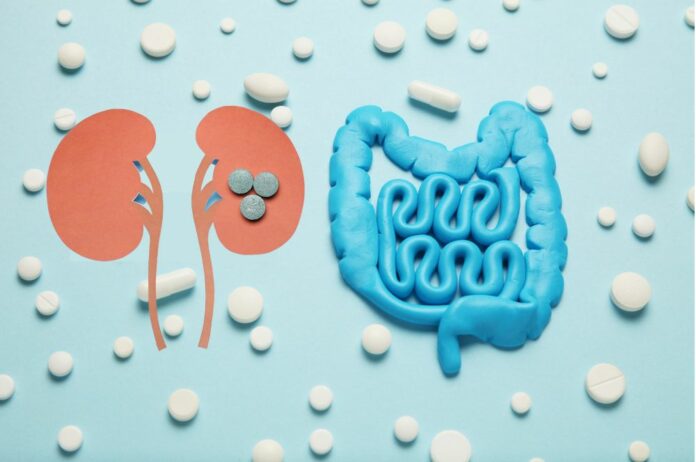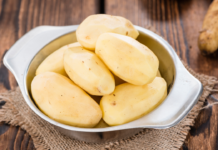Sponsored by: Renadyl™
When managing chronic kidney disease, there are many things to keep in mind. Making dietary changes and focusing on protein, sodium, and hydration is key. With that being said, gut health is equally as important when it comes to managing chronic kidney disease in a healthy way.
What is gut health?
Gut health is referred to as “multiple positive aspects of the gastrointestinal (GI) tract, such as the effective digestion and absorption of food, the absence of GI illness, normal and stable intestinal microbiota, effective immune status, and a state of well-being.”1 Put simply: gut health refers to the state of the microbiome in your body & the balance of good and bad bacteria in your gut. Our gut doesn’t just influence our stomach and digestive system; studies show that it can affect our immune system, kidney health, and mental health too.
Why is gut health important for CKD management?
Studies show that our gut health is linked to our kidney health because gut-derived uremic toxins are associated with the progression of CKD, cardiovascular disease, and mortality.2 When you have CKD, toxins and waste products can build up in the body and become harmful. This buildup can result in further progression of CKD. Focusing on good gut health can help to reduce the amount of toxins and waste products in the body & therefore help to slow the progression of CKD. It can also help keep your bowel movements regular, especially if you are used to experiencing constipation. If you are protecting your gut health, then you can help protect your kidney health in turn.
How can you help protect your gut health?
There are many ways to promote good gut health, like focusing on foods or supplements rich in pre/probiotics. Prebiotics are food for good gut bacteria, called probiotics. It is important to have a good mix of both pre/probiotics so that you can continue to feed and replenish the good gut bacteria in your body.
Where can you get pre/probiotics?
Pre/probiotics are found in both foods and supplements. Foods rich in prebiotics are chicory root, Jerusalem artichokes, garlic, bananas, onions, leeks, asparagus, barley, oats, and apples. Foods rich in probiotics are yogurt, kefir, tempeh, sauerkraut, kimchi, and miso. Many of these foods can fit into a kidney-friendly diet, but it’s important to keep your nutrient needs in mind, like sodium or protein.
Overall, research shows that maintaining good gut health is essential for managing chronic kidney disease and protecting your kidney health over time. Protecting your good bacteria can help remove more of the uremic toxins that contribute to further CKD progression from the body. In order to support good gut health, choosing foods rich in pre/probiotics and considering taking a pre/probiotic supplement is important.
Learn more about our sponsor Renadyl™ here https://bit.ly/3sZDWbb
About the Author
Kellsey Reed is a kidney dietitian. She helps people with CKD learn to eat the foods they love so they can improve their kidney health and live their best life with CKD. As a registered dietitian who specializes in chronic kidney disease, she has been through extensive training to give you the best support and guidance possible. In her career, she’s seen the lack of support given to those with CKD and is on a mission to change that.
“I don’t believe in just giving you a one-page handout that says “eat this” and “don’t eat that”. I don’t believe in telling you to stop going out to eat! I don’t believe in having you cut out all the foods you love in order to manage your CKD! I believe in giving you all of the tools, resources, and support that you need to eat for your CKD with 100% confidence! I believe in helping you learn how to travel, go out to eat at your favorite restaurants, have a date night with your spouse, and celebrate holidays and birthdays with your family without stress, anxiety, or confusion!”
If you’re interested in learning more about Kellsey’s coaching program or the free resources she offers, go to her website: ckdnutrition.com. You can also follow along on Instagram or TikTok at: @ckd.nutrition.coach!
References
- https://www.ncbi.nlm.nih.gov/pmc/articles/PMC3065426/
- https://www.ncbi.nlm.nih.gov/pmc/articles/PMC7859267/
*These statements have not been evaluated by the US Food and Drug Administration. This information is not intended to diagnose, treat, cure, or prevent any disease. Always consult with a qualified healthcare professional prior to beginning any diet or exercise program or taking any dietary supplement. The content on our website is for informational and educational purposes only.




